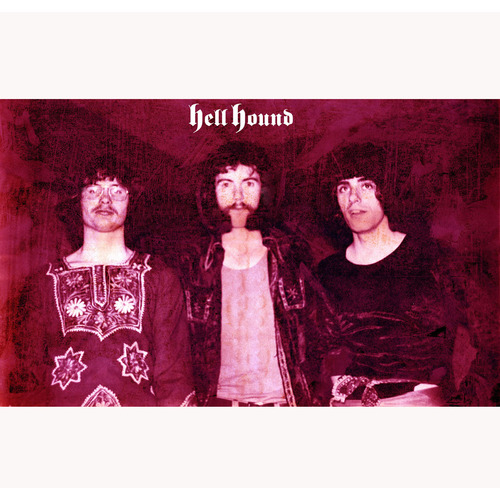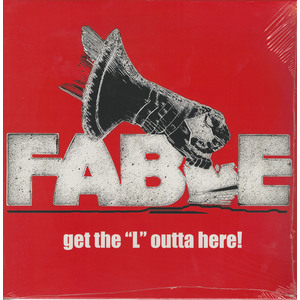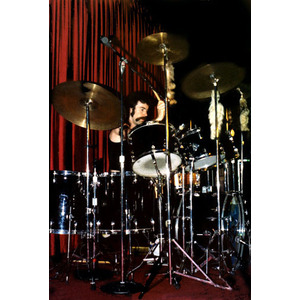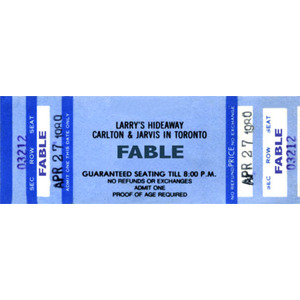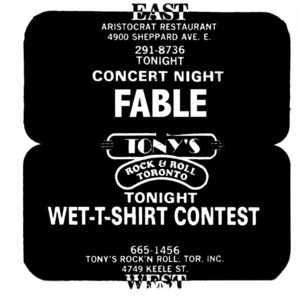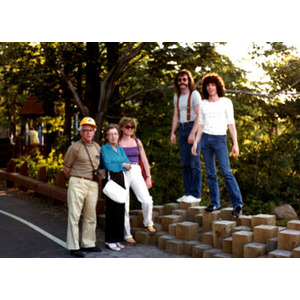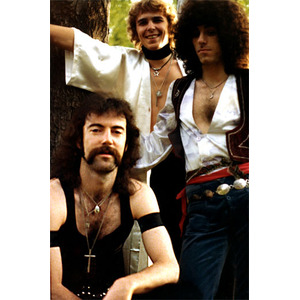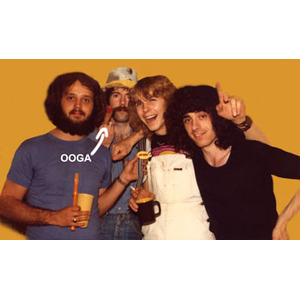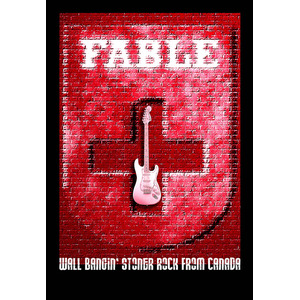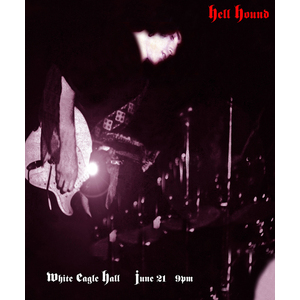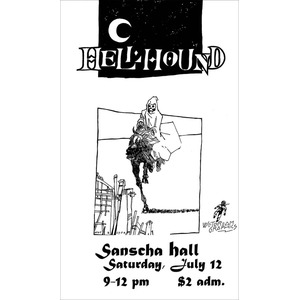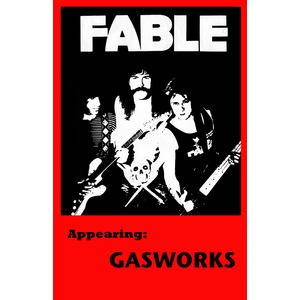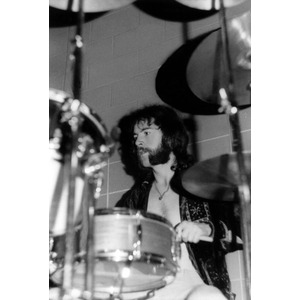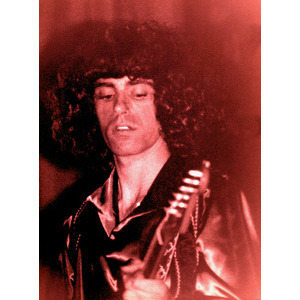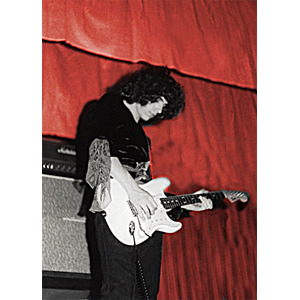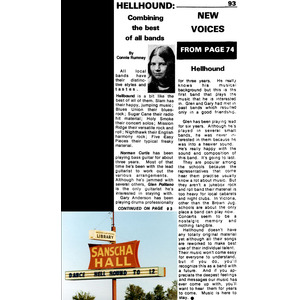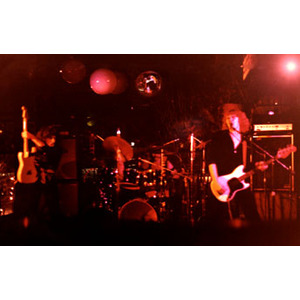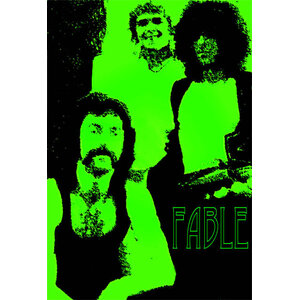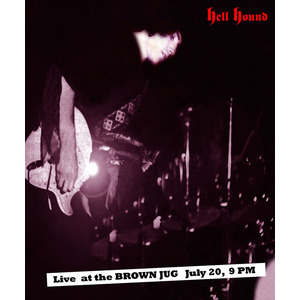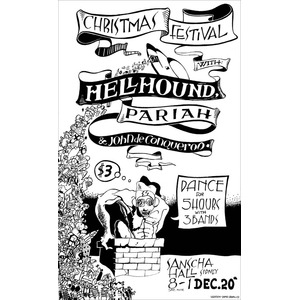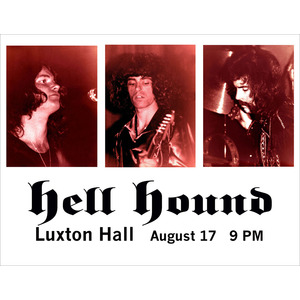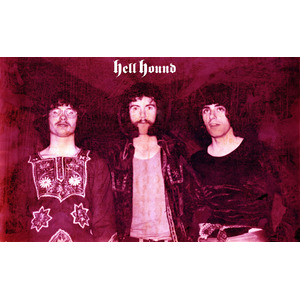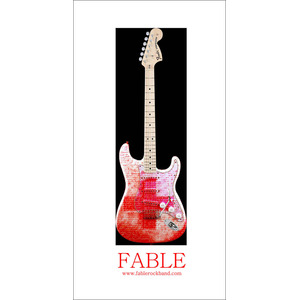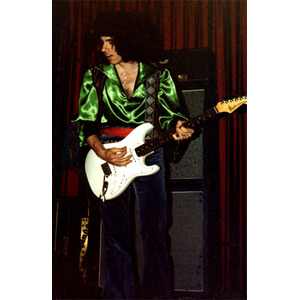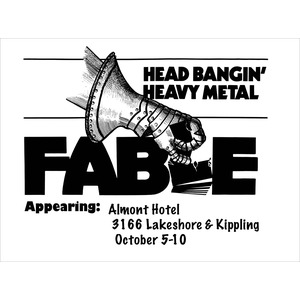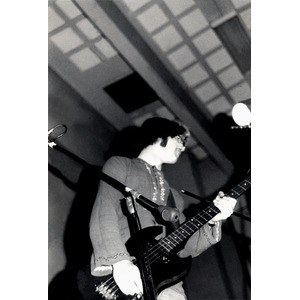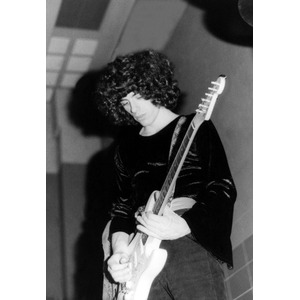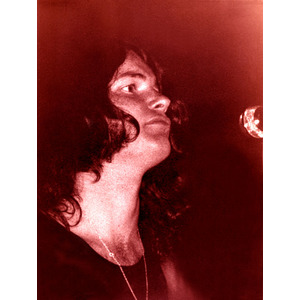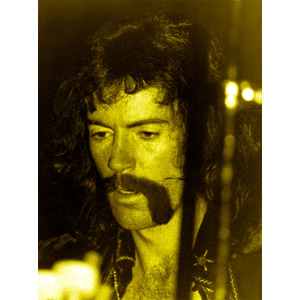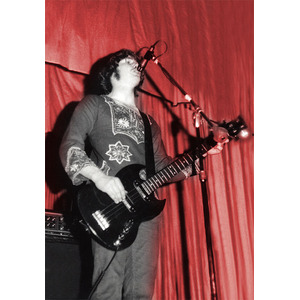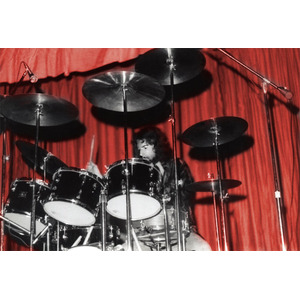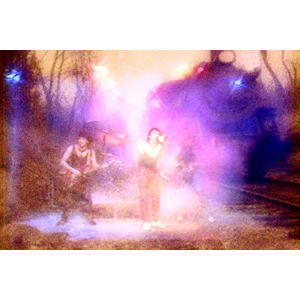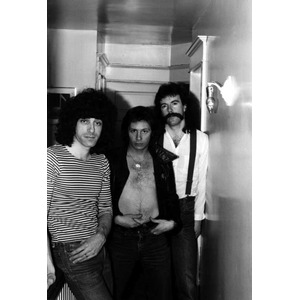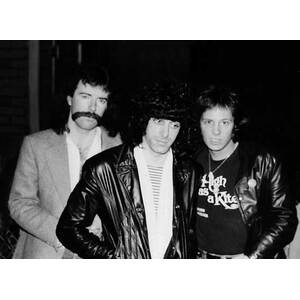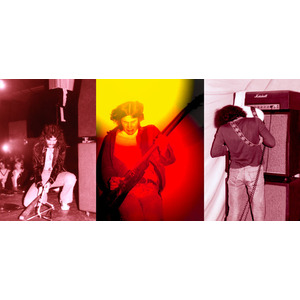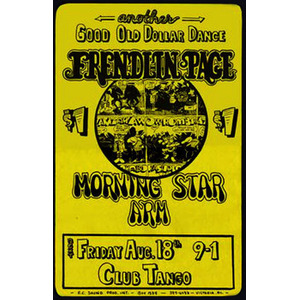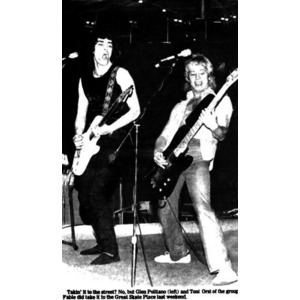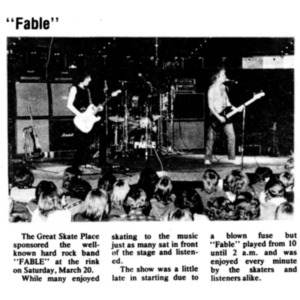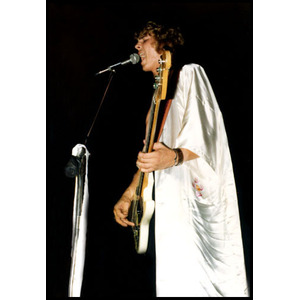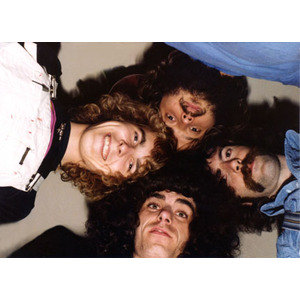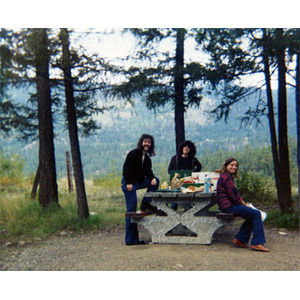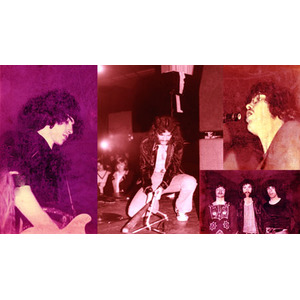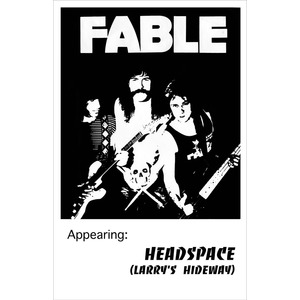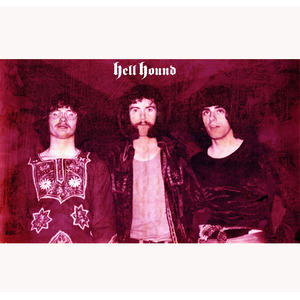Fable
Websites:
https://fablerockband.com/
Origin:
Victoria, British Columbia, 🇨🇦
Biography:
Once upon a time, 3 Canadian musicians figured that they had invented their own brand of ROCK. These courageous artists decided to follow their instincts and spread their musical tale to all those who would listen.
And thus, the rock band FABLE was formed by individuals coming from such separate regions of Canada as Victoria and Toronto. FABLE immediately found itself attracted to the "play it loud soundtrack" that accompanies peoples' lives who tend to live and die by this score. Screeching wah-wah guitars, thumping drums and throbbing bass notes became the driving force behind this Canadian power trio.
Also, yielding to their audiences' requests for a recording, FABLE went into the studio and created a musical response for their adoring fans.
Thus, the album Get the "L" outta here was born on LP and CD. The title of the album reflects the indirect encouragement that FABLE received from club owners, booking agents and even family members.
FABLE's Get the "L" outta here represents a brilliant effort by the band and the album is dedicated to all those music lovers who appreciate and enjoy that 70's Canadian primeval Rock sound. Previous to Fable, however, there existed a group called HELL HOUND. Following the latest stage of FABLE's musical history, TASK FORCE came into being.
Throughout these three bands, two musicians remained the core force: Glen Politano and Gary Anderson.
One of the first times that Gary Anderson and Glen Politano ever played together was under the name of ARM. This group is considered to be the seed from which HELL HOUND eventually sprouted. ARM dissolved and Gary and Glen went their separate ways.
It was only after a year had elapsed that Gary received an invitation from Glen to join him and bass player Norman Curtis in another rock outfit to be called HELL HOUND. Within two weeks, on a hot June night, Hell Hound had given their first performance at an after hours club called Bananas in Victoria, BC. The three musicians were now together and finding that good music and good times came with their musical union. HELL HOUND lived for three very rewarding years and the band itself became the seed for FABLE.
When FABLE, after five years of glorious rock 'n' roll service changed name to TASK FORCE . Gary and Glen toyed with the idea of expanding the band but ultimately decided to maintain the trio format . When the auditions were over, Tony Orsi was chosen for bass and lead vocals since Glen and Gary wanted to embark on a somewhat heavier and rawer sound reminiscent of HELL HOUND.
TASK FORCE, was by all means, a logical progression of the musical ideas and experiences of the band's members. Even the artwork in the TASK FORCE's album shows the sophistication and uncanny relationship that always existed between Gary and Glen.
Throughout the Toni Orsi period, there had been numerous talks of reforming FABLE with Phil Parmentier. An impromptu final appearance of Phil at a TASK FORCE performance created an incredible reaction from the audience.
Internal turmoil within the ranks eventually brought TASK FORCE to being redeployed to the West Coast. (Private Orsi went ballistic and AWOL. He was eventually sent to boot camp in Toronto).
Once back in Fort Victoria, BC, TASK FORCE's musical evolution was furthered by the participation on vocals of Glen's brother, Bryan Politano and a new bass player, Andy Galey. TASK FORCE became a force to be reckoned through their fan base and this rock group proudly served Canada for six years.
Q: How did you choose the name FABLE for
your band?
A: The name came about because we moved to a new city which was essentially starting fresh. The band originally was HELLHOUND in Victoria, British Columbia. Norman the bass player came up with the name FABLE. He was bouncing ideas off of Tim Winkleman, our road manager, when he came up with it, although he didn’t really like it at first. Glen had to twist his arm a little bit. Gary was easy though, he just wanted to get on with the music.
Q: What significance does the name FABLE
have for you?
A: Before we left Victoria we had talked about changing the name. Even the music that we were writing was taking on a new character so we wanted a name that reflected that. I think we wanted to get away from the darker image that HELLHOUND conjured up.
So as a group we had a fresh start in Toronto - and the name was part of it. We felt that our music was telling stories, that it was taking you on journeys just like fables do.
Another connection between FABLE and the music is that we were singing musical tales about characters that really existed and inspired us.
Q: How did the 1975 FABLE album come together?
A: Shortly after arriving in Toronto, the bass player Norman Curtis left the group. We auditioned for a new lead vocalist/bass player, ended up choosing Phil Parmentier because we were impressed with his musical talent and voice.
Also, we loved his showmanship and that refreshing spark that we were looking for the second incarnation of FABLE.
With the songwriting abilities of Glen and Phil backed by Gary’s driving beat, magic was in the air.
All three members of FABLE contributed to the songs on the album. The main songwriter, however, was Glen Politano.
Now that FABLE had three strong musicians, and recordable material, the next logical step for us was to hit the recording studios rather than hit the bar and concert circuit first.
Q: Why did FABLE go record an album without first playing and testing the songs with live audiences?
A: FABLE actually had tested some songs on audiences. With the addition of Phil, new material came about that had not been tested.
All the musicians in FABLE , however, thought that by recording an album first, they could create their own product to take to radio stations and audiences and therefore open FABLE’s own market.
Thus, it was hoped that this would also create a fan base which would appreciate what we were doing creatively as musicians, and that our musical output would not be supervised by a producer or a recording label on a purely commercial interest only.
Q: What kind of reception did you have with Fable across Canada?
A: Very hot in the Ontario-Quebec area and in Alberta and BC. We did not make it to Eastern Canada, though. And not much was going on in the prairie provinces for Fable.
Q: Are there particular groups or musicians that have influenced Fable?
A: Yes. Cream, Jimi Hendrix, Grand Funk Railroad, Robin Trower, Deep Purple, Uriah Heep, Led Zeppelin, Black Sabbath and Sir Lord Baltimore.
Q: What kind of experiences did the musicians with Fable have that might be considered highlights in their careers?
A: The Fable fans that made the entire musical experience of our group worthwhile; time spent in the recording studios; the great madness that groups experience while on the road; playing with two really good bass players like Norman Curtis and Phil Parmentier. The greatest thrill for Fable was headlining rather than opening up for regional bands that were not as good as Fable. Playing large outdoor concerts was always exciting. And of course, when bored, dragging the band's mascot behind the truck across Canada. Luckily Ooga survived this.
Q: What other loves and interests do you have other than Fable?
A: Gary, for instance, collects music made by other musicians from around the world during the period of 1965-1975. He is also into raising Siberian Huskies, camping and taking care of business.
Q: What other loves and interests do you have other than Fable?
A: Glen loves Gary and Gary loves Glen. (No one was supposed to know but now the secret is out.)
Glen also loves and collects music of all kinds dating from the 1920's to the present. He finds great humour in many aspects of his life which is constantly roused by complex yet simple influences. He also likes to read science fiction novels and riding his bike.
Q: Are there any differences between your album recorded music and live performances?
A: Our intentions were to be pre-planned and closer to the music in the albums, but depending on the venue or the response of the audience, we could get away with improvising.
Q: How would you describe the sound or style of Fable?
A: Loud, heavy and aggressive but filled with positive energy and melody.
Q: Are there any individuals that deserve special acknowledgment in the history of FABLE?
A: Yes. Mr. and Mrs. Politano for not complaining about all the noise that we put them through during the Hell Hound days, as we practiced in the basement of their house.
Q: Where is Phil Parmentier?
A: He is living in our hearts. Phil is also waiting for us, for that "made in heaven" FABLE reunion gig.
